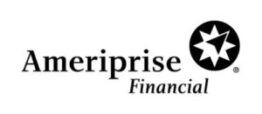
Reverse Convertible Notes are highly complex financial products that are structured to pay a higher interest rate than conventional debt of the same issuer because of the inclusion of the embedded derivative that provides essentially a synthetic put on the underlying stock.
Investors get the higher rate of return which is capped, if the underlying security increases in value, but the Reverse Convertible Notes also have a put option, that if the underlying security falls below a certain price or “trigger,” instead of owning the bond, the investor is “put” the stoc, which already has decreased in price.
Accordingly, it is a win, win for the broker-dealer or issuer. But can be a lose, lose for investors. If the underlying stock goes up, the issuer keeps that profit above a certain amount. If the underlying stock goes down, it is the investor’s problem.
During the period from 2011 through 2014, UBS Financial Services sold approximately $10.7 billion of Reverse Convertible Notes to approximately 44,000 investors.
However, the United States Securities & Exchange Commission in connection with an enforcement action against UBS Financial, In Re UBS Financial, Inc., Administrative Proceeding File No. 34-17587, found that also during the period, UBS Financial failed to reasonably train or to supervise its stockbrokers in connection with the sale of these highly complex securities.
According to the SEC, because of the Firm’s inadequate education and training, certain UBS registered representatives did not adequately understand certain aspects of the Reverse Convertible Notes, and thus they did not always form a reasonable basis to determine that the Reverse Convertible Notes were suitable for certain customers.
As the Securities & Exchange Commission, in its approval of the consolidated FINRA Suitability Rule 2090 recently observed:
Reasonable-basis suitability requires a broker to have a reasonable basis to believe, based on reasonable diligence, that the recommendation is suitable for at least some investors.
In general, what constitutes reasonable diligence will vary depending on, among other things, the complexity of and risks associated with the security or investment strategy and the firm’s or associated person’s familiarity with the security or investment strategy.
A firm’s or associated person’s reasonable diligence must provide the firm or associated person with an understanding of the potential risks and rewards associated with the recommended security or strategy.
See Securities Exchange Act Release No. 34-63325 (November 17, 2010).
Before a broker may recommend an investment they must have a sufficient understanding of its risk and characteristics and whether it suitable for any investor. UBS registered representatives were not adequately educated and trained to understand adequately the risk and characteristics of the product, including relevant volatility concepts and the role that volatility played in the selection of the equity securities underlying the Reverse Convertible Notes.
According to the SEC, this inadequate training and education led to the unsuitable recommendations of Reverse Convertible Notes to certain of the customers who had identified to UBS modest reported income and net worth, primarily moderate or conservative investment objectives, and some of whom were retired.
It is well understood, as also mentioned by the SEC, “A customer who purchased Reverse Convertible Notes from UBS reasonably expected his or her registered representative to sufficiently understand Reverse Convertible Notes before recommending them.”
Investors suffering damages from the purchase of Reverse Convertible Notes from UBS Financial Services may have the ability to recover their investment losses and should consult with an attorney to determine their legal rights.
Guiliano Law Group
Our practice is limited to the representation of investors. We accept representation on a contingent fee basis, meaning there is no cost to you unless we make a recovery for you. There is never any charge for a consultation or an evaluation of your claim. For more information, contact us at (877) SEC-ATTY.








